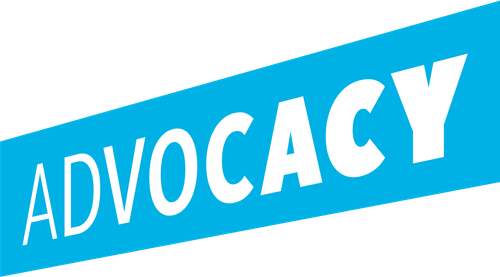The Movement for Black Lives (M4BL) Action Fund is a C4, and a fiscally sponsored project housed by Tides Advocacy, with a bold mission to bring about electoral justice and transformative policy for all Black lives and the planet.
About Us
Established in 2017 as the C4 arm for the Electoral Justice Project, in 2020 the fund expanded to become the C4 home for additional projects and programs. These include the BREATHE campaign, a project focused on investment in community supports and divestment from policing/carceral institutions; and Climate and Environmental Justice (CEJ), led by the Black Hive, which focuses on assessing how climate change and ecological destruction impact Black communities, and on organizing to create social, policy, and systemic change that creates cleaner, better, and safer futures for Black lives.
The M4BL Action Fund, just like its C3 counterpart, is a space for Black organizations across the country to assess the current sociopolitical conditions, develop shared strategies, and create necessary interventions to achieve key policy, cultural, systemic, and electoral wins—all under the fundamental idea that we can achieve more together than we can separately.
The M4BL Action Fund, contingent upon the type of C4 resources made available, has the faculties of performing lobbying-based work. As a fiscally sponsored project of Tides Advocacy, we are nonpartisan and do not have 501(h) election status.
Projects
The Electoral Justice League, EJP’s annual fellowship, announced its third cohort in 2022. The fellowship is supporting 12 organizations with grants of $75K and a year of technical assistance, training, and strategic support to strengthen the capacity of these organizations to launch and win electoral-justice campaigns.
Additionally, in 2022 M4BL member organizations led transformative campaigns that abolished slavery in Alabama and Tennessee; enshrined abortion protections in Michigan, California, and Kentucky’s state constitutions; legalized recreational marijuana in Missouri; and expanded democracy in Arizona. This was all possible because of the tireless efforts of Black voters, organizers, and activists, who time and again lead the work to build an inclusive democracy.
The EJP worked to empower local orgs to actualize the policy agenda of M4BL and facilitate long-term power-building. Following the uprising and historic 2020 engagements of Black voters, 2021–2022 presented an opportunity to pivot our strategy to build local power. The long-term impact of building fellowship and capacity-building programs such as Black Capture is to grow the capacity of organizations to build long-term infrastructure to engage Black voters year-round, champion policies that mitigate harm against our communities, and hold institutions accountable for their impact on Black people.
In the aftermath of the 2022 midterm elections, M4BL member organizations are preparing for 2023 local elections and gearing up to contest for power in 2024. Our work to expand the electorate encompasses challenging the unrelenting attempts to disenfranchise our communities. Our organizations are building the necessary infrastructure to organize against these attempts in 2023.
M4BL’s policy work began with the Vision for Black Lives and BREATHE Campaign. Unveiled in the wake of the racial justice uprisings in 2020, the BREATHE Act was a bold new vision for public safety. It offered a response to our demands for divestment from punishment, investments in our communities, and a legislative blueprint to make it a reality.
Three years later, the push to pass the BREATHE Act as a single federal omnibus bill has evolved into a broader BREATHE Campaign, designed to inspire and advance aligned legislation at the federal, state, and local levels, tailored by our communities. The purpose of the BREATHE Campaign is to engage in and support political education, organizing, legislative advocacy, and budget priorities for BREATHE-aligned policies that preserve the integrity of the act’s original legislative goals, and root itself in the Vision for Black Lives.
The People’s Response Act, reintroduced on July 18, 2023, is the first BREATHE-inspired bill to be introduced to Congress by Representative Cori Bush, and calls for the creation of a new Division on Community Safety within the Department of Health and Human Services, to administer federal funds to support preventative, non-carceral community safety programs, while treating public safety as a public health issue. BREATHE has also inspired state legislation like Illinois’s Safe-T Act, while making possible other BREATHE-aligned bill policies, campaigns, and coalitions like the federal Community Safety Agenda, the Michigan BREATHE campaign, and many more.
The M4BL Action Fund is also spearheading a number of climate and environmental justice (CEJ) efforts, anchored by the Black Hive, focused on Black communities that bear the brunt of climate disaster. Led by Black CEJ experts, our work proposes and advocates for pro-Black climate policies and practices, creates alternatives to harmful systems, and helps build the capacity of local communities and organizations.
Our approach to CEJ demonstrates a deep understanding of how climate and environmental issues are intersectional. Socioeconomic issues such as structural racism and poverty exacerbate, and contribute to, the ways Black communities experience climate and environmental harms. As a result, a distinct feature of our shared work is that it is strongly abolitionist and anti-capitalist, with a Black queer feminist framework.
Join us as we organize, advance policy, develop narrative power, engage in resiliency planning and political education, and catalyze our communities into action!

